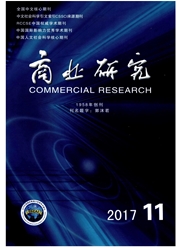

 中文摘要:
中文摘要:
作为最重要的农业生产资料,耕地在保障国民经济健康有序发展的同时,对维护国家粮食安全、保证社会和谐以及保全生态环境起着至关重要的作用。当前节约集约用地已成为转变经济增长方式的重要抓手,耕地保护已成为一项重要国策。然而,在中央政府付出了巨大的财政补贴和成本之后并未达到应有的效果。本文借助演化博弈方法并以耕地价值为基础构建中央政府与地方政府策略互动的支付矩阵,探究其动态演化过程。研究结果表明中央政府长期单纯地对地方政府耕地保护进行激励或惩罚作用不大;中央政府即使在短期内可以通过加强惩罚力度和提高奖励来促使地方政府对耕地进行保护,但地方政府经过长期的系统博弈演化仍会趋于不保护耕地。
 英文摘要:
英文摘要:
In the process of maintaining the healthy and ordered development of national economy, cultivated land, as a central means of agricultural production, plays a vital role in keeping national food safety, ensuring social harmony and preserving ecological environment. Presently, economical and intensive use of land has become a most important tool in the transformation of economic growth mode, and cultivated land protection has become an important national policy. However, expected effects are not achieved after the central government has paid out an enormous amount of fiscal subsidy and cost. With the help of evolutionary game and based on the value of cultivated land, this paper attempts to construct an interactive payoff matrix of the strategies of the central government and the local government to explore its dynamic evolving process. The research finds that during the cultivated land protection of the central government, mere stimulation and punishment for the local governments are not effective in the long term; even though the central government can apply short-term intensified punishments and enhanced rewards to urge the local government to protect cultivat- ed land, after a long period of systematic game evolution, local government do not tend to fulfill it.
 同期刊论文项目
同期刊论文项目
 同项目期刊论文
同项目期刊论文
 期刊信息
期刊信息
